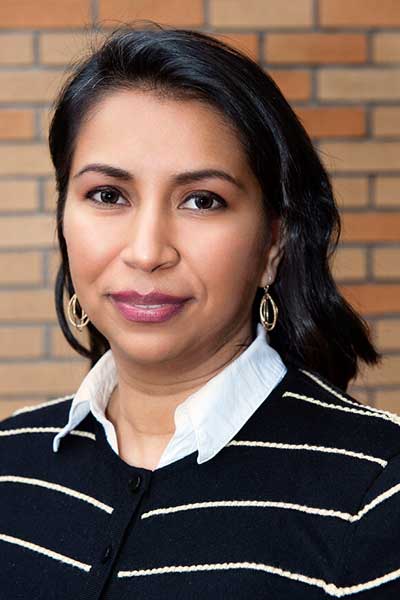
Alicia Borre, Ph.D.
Borre's research aims to better understand individual and contextual factors that promote resilience among children, youth and families in the face of adversity.
Alicia Borre, Ph.D., is a developmental psychologist with more than 20 years of experience working with children, youth and families. She received her Ph.D. in developmental psychology from VCU and will be teaching life span development and psychology of adolescence in the department.
Q&A with Dr. Borre
Where did you grow up? Can you tell us a little about your educational journey?
I am originally from Colombia and I grew up in the capital city Bogota. There I completed my undergraduate studies in psychology and got my license to practice clinical work. I worked with the national welfare system, working with orphanages and foster care families. Later, I worked with mentorship and adoption programs. Once I moved to the U.S., I got my M.S. in applied developmental psychology from George Mason University and my Ph.D. in developmental psychology from VCU.
When did you first fall in love with your field of study? What made you decide to work in academia?
While working with the welfare system and witnessing the struggles of children and families but also their incredible resilience and ability to overcome challenges. I knew I wanted to better understand the mechanisms in place to support individuals and families to overcome adversity in any given context. Then, I left clinical work and pursued my Ph.D. and academic life.
Can you explain the focus of your research?
I aim to better understand individual and contextual factors that promote resilience among children, youth and families in the face of adversity.
What attracted you to VCU? What are you most excited about in regards to VCU and Richmond?
The community! I see at VCU a genuine interest to support and promote the success of faculty, students and employees. Also, VCU’s commitment to advance applied science.
Can you talk a little about your teaching philosophy? What do you most like about teaching?
I believe students learn best when their self-reliance and initiative is promoted. I always learned the most when I was encouraged to take care of my own learning process and to develop critical thinking skills. That's why I see my role as a teacher being primarily to facilitate student learning and to communicate the potential personal and professional value of each course. I personally enjoy teaching about the different ways by which developmental psychologists can promote the translation of research into practice, and I consistently incorporate in my class discussions about the clinical, social and/or policy implications of what is being taught.
Can you tell us either a quirky fact about yourself or some of your hobbies?
I enjoy hiking, swimming and biking. Riding my bike to the beach for a swim is one of my happiest moments! I also enjoy art in all its expressions, listening to all types of music, playing video games and doing puzzles.